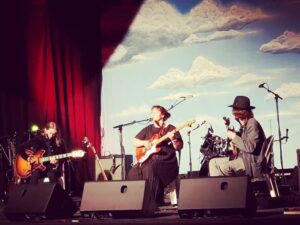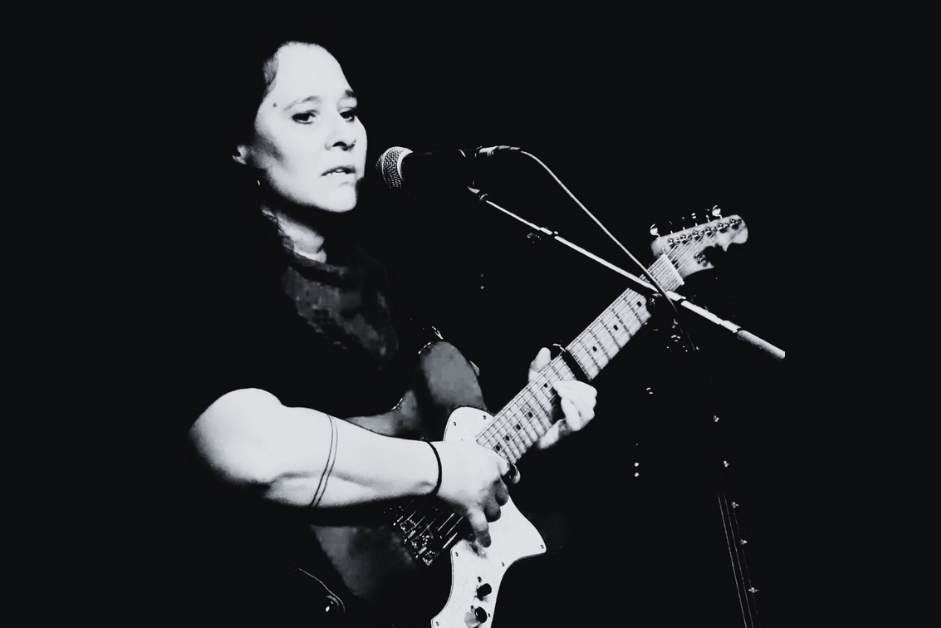
Image by Shelley Clarke
Submitted 19 Aug 2022
I write with a mixture of fury, frustration and weariness but also for the first time in a long time, hope. I am encouraged by this process of consultation and the possibility of meaningful change.
I write endorsing the submission by Dr Gwenda Davey regarding folk arts, folk culture and recognition of Australian Folklife (as per Folk Life: Our Living Heritage. Report of the Committee of Inquiry into Folklife in Australia, 1989).
I write in support of a desperately needed increase in media coverage of Australian arts generally, increased exposure for Australian arts across all ABC platforms – particularly around independent music quotas and coverage of Australian ‘folk’ and niche genre musics that do not receive attention on commercial radio. In this regard, the ABC continues to operate outside the guidelines of its charter.
I write in support of the submission by the Media, Entertainment & Arts Alliance (MEAA) who speak on behalf of arts workers at a time when thousands are leaving the sector due to incredibly difficult and suffocating work environments and very little basic wage or job security.
I write as an independent musician, small business owner, academic and advocate.
I write as somebody who has a good deal of experience and knowledge about cultural expression, cultural meaning, traditional arts and community arts. I’m also somebody who is deeply passionate about advocating for the intangible value of arts, its importance to cultural identity, expression and conversation.
I submit to yet another government inquiry to express my dismay at the disregard and breathtaking ignorance Australia has historically displayed in regard to understanding the value of the arts and arts culture outside of economic frameworks and industry narratives.
This reality, understood and acknowledged by so many across the creative industries, has been repeatedly ignored by successive governments over many decades.
The result is a market-driven cultural landscape, held ransom by state arts organisations who fund the arts with little understanding of the realities and challenges facing most arts practitioners. The result is a situation where most of our creatives don’t have the opportunity to make their work (or creative businesses) financially viable as a primary source of income.
Melbourne (for example) boasts about being the ‘live music capital of the world’ but does so without acknowledging that most musicians live in poverty, have no access to leave or superannuation, do not have access to significant arts funding and are forced by the market to operate using business models that in any other industry would be considered unviable.
The result of Australia’s historic dismissal of the arts is a population whose exposure to the arts is minimal outside of larger market-driven arenas such as large festivals, concert venues, commercial radio, major galleries, commercial radio, theatres and cinemas. Generations of children have grown up without access to an education where the arts are deemed an essential aspect of human development. Audiences are ‘fed’ arts instead of learning to explore, curate, interact and participate.
The result is an entire workforce of highly skilled musicians, writers, visual artists and dancers who spend their lives and careers feeling like they should be grateful simply to be doing what they do ‘for the love of it’. This is the great cultural cringe we have inherited.
The result is a nation with incredible artistic potential crippled by a lack of vision and a lack of depth of understanding.
Culture and the arts are inseparable. I engage regularly with creative practitioners and academics from all over the globe whose work and communities are supported because their governments have an inherent and deep appreciation of culture and the arts, of smaller scale, local, often volunteer-led community and traditional arts practices.
This sphere of the arts is funded by governments internationally without expectations of market development, profit, export potential, tourism dollars or commercial appeal. This sphere is funded because the arts is recognised for its cultural value, contribution to community identity and wellbeing.
Comparatively, Australia’s lack of regard and support for its own cultural voice outside of economic paradigms is degrading and shameful.
Underneath the thin strata of our celebrated and commercially successful ‘major’ artists are thousands of creatives working in non-mainstream and niche markets that are equally fundamental to Australian cultural expression.
This overwhelming focus on the market value of Australian arts also means that arts organisations are equally as blind to deep arts culture as governments have been. As opposed to being supported by arts bodies, independent and niche artists often find themselves misunderstood and at odds with the values and expectations of funded and commercial organisations who dominate the arts landscape.
Made worse by the pandemic, we are losing our artists, small industries, community events and organisations that are intrinsic to deep arts culture in this country. These are organisations without market might – run on small budgets by volunteers with passion and vast skill sets who do not have the resources to seek funding or compete for places in elite arts networks.
While I acknowledge the importance of industry and commercial pursuits within the arts, the foundations of policy remain ineffective until culture is viewed through a different lens by governments and organisations.
Until that lens is changed, I sincerely do not believe that we will see the arts flourish in this country in the way it could – and Australia is home to some of the most fascinating stories and exciting, innovative, skilled, and diverse artists in the world.
Our cultural identity is our heritage, and heritage is as much about our future as it is about our past.
~ Ruth Hazleton – Melbourne, Vic
- Independent Musician (Traditional & Folk Music) 25 years +
- International Tour/Booking Agent & Events Management (Folk & Roots Sector) 4 years
- Federal Council, Music Section, Media Entertainment & Arts Alliance (MEAA) Independent Music Advocate (2015 – present)
- Independent Folklorist & Academic | Intangible Cultural Heritage & Oral Historian
NOTE: This submission has been strongly endorsed by cultural historian and noted music producer, Warren Fahey AM. Warren, recipient of the Don Banks Music Award, Australian Sound Recordings Association (ASRA) Lifetime Achievement Award, Prime Minister’s Centenary Medal and the CMA Judith Hosier Lifetime Achievement Award, has been a long- time champion of Australian music including calls for support for non-aligned performers under the diverse folk music umbrella, recognition and support for Australian folklore studies and allied programs, and increased Australian music content on radio and television.
MAKE YOUR OWN SUBMISSION HERE

